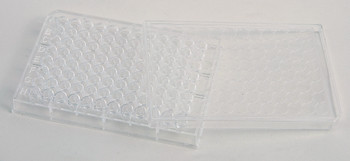Description
Detect X Bacteria - 96 Well, (DB-003)
• Escherichia coli specific gene (Detect/Non-Detect): None, <1 CFU/gram
• stx1 gene (Detect/Non-Detect): None, <1 CFU/gram
• stx2 gene (Detect/Non-Detect): None, <1 CFU/gram
• Salmonella specific gene (Detect/Non-Detect): None, <1 CFU/gram
• Pseudomonas aeruginosa
• Staphylococcus aureus
• Listeria monocytogenes
If requested, a BTGN, detect non detect is available under DB003-W
Detect X is a highly robust, sensitive and specific diagnostic assay designed to provide a presence or absence readout if the organism is present at or above 1 CFU/gram. This assay has the shortest processing time of any multiplex microbial assay accepted by a regulatory agency and is able to test a wide variety of matrices. The Detect X assay allows the user to detect E. coli species, both pathogenic and non-pathogenic, at levels down to 1 CFU/gram and allows the user to differentiate between Shigatoxigenic (Stx1 and Stx2) pathogenic strains. Aspergillus is a large and extremely diverse genus of fungi, with many species resembling one another. Detect X will speciate four specific Aspergillus species (A. flavus, A. fumigatus, A. niger, and A. terreus), and reliably differentiate them from similar, but less pathogenic species of Aspergillus.
With its proprietary technologies, PathogenDx designs and develops nucleic acid test kits and automation for the detection and speciation of a few, up to several dozen microbial or viral pathogens as a single test panel. The kits and associated imager (SensospotTM) are sold to regulated testing labs in Cannabis, Food, IVD and Environmental Screening markets. Although the pathogen test content varies based on the market application, the technology has as its core a type of low cost DNA microarray, mass produced as a 96 well SBS-formatted microplate, delivering up to 400 oligonucleotide hybridization tests in parallel, per well. In each kit, the microarray plate is provided with all reagents needed for automated or manual sample preparation (96 samples) then multiplex asymmetric PCR or RT-PCR (96 samples) which then generates amplicon products which are then analyzed (up to 96 samples in parallel) on a single SBS-Format plate. Subsequent to room temperature hybridization and washing, by hand or with an ordinary off-the-shelf fluid handling robot, the resulting microarray test is imaged on a dedicated 96 well plate imager (SensospotTM). All 96 array images are then analyzed via simplified, hands-free, autonomous software (AuguryTM) that is provided as a no-cost license with the kits. The software is configured to run locally, or as part of a cloud-based testing system, which is accessed over the internet on a secure Portal. The Portal, also provided as a no-cost license, enables secure data storage and sharing and technical support from PathogenDx staff.





